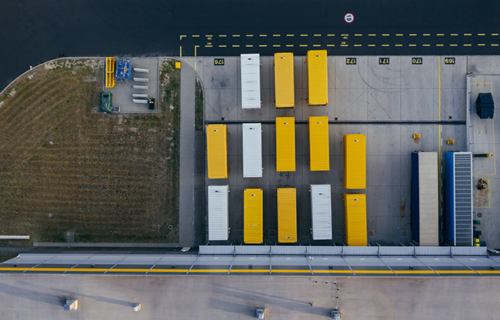Panattoni has co-authored a major report which examines key sustainability metrics and indicators for businesses operating within the logistics and supply chain sector.
The most important factor driving sustainability activity for European logistics businesses is the desire to make a positive environmental impact, according to the report. The need to meet regulatory and legislative requirements is less of a driver of action, acknowledging that logistics operators, retailers and manufacturers are much more in step and aware of the sustainability requirements being made of their companies.
The third European Logistics & Supply Chain Sustainability Report, produced this year by Panattoni, HFW, the international law firm, Pledge, the sustainability software platform and Analytiqa, the research specialist, places sustainability in the context of financial pressure on supply chains as a key theme. European supply chains continue to operate in challenging market conditions and the return to ‘normal’ trading post-Covid has still not been fully realised.
The report shows that that there is a growing willingness among logistics businesses to operate out of green buildings and to pay a rental premium for a green building, but invariably with an eye on cost savings – 42% of companies would be willing to pay a rent premium equivalent to the total operating cost savings to move operations to a ‘green’ building from a standard ‘non-green’ building.
Almost two-thirds of logistics businesses remain challenged by the financial cost of sustainability solutions and more than half suggest that lower costs of implementing sustainability solutions would improve their company’s future sustainability efforts, the report adds. It is likely to be smaller companies, with fewer resources available to devote to sustainability, that are less likely to have sustainability programmes in place, or an understanding of their obligations to report emissions or the emissions associated with their products or services.
The availability of financial incentives, such as grants and subsidies, are seen as an important factor to encourage companies to improve the future sustainability. Almost one in five companies state that they would be willing to pay extra for environmental certifications, because it adds value to their sales efforts and just 16% of respondents either do not know, or would not be willing to pay a rent premium to move operations
to a ‘green’ building. Only 13% of respondents either do not know, or would not be willing to pay a premium to move transport operations to a ‘green’ fleet.
Emilia Dębowska, Head of Sustainability Europe at Panattoni, said: “The challenge of defining or measuring financial returns on sustainability measures has decreased, despite financial constraints and the fact that these efforts often lead to higher investment costs. It may indicate progress in the ability to quantify the benefits of sustainability efforts or to understand the positive impact of the transition over the longer term”.
Other key findings of the report include:
• Making a positive environmental impact by landscaping trees, lawns and biodiversity is notably more important amongst respondents this year, as is investing in battery storage (for onsite renewable energy generation), especially for logistics operators
• Energy-saving solutions remain the most important sustainability feature for a company’s warehouse operations, whilst the provision of electric vehicle charging points, with many new warehouse specifications now incorporating these as ‘standard’, is seen as increasingly important
• Elements of uncertainty remain, however, and companies are still demanding greater clarity from both industry and at a government level regarding future fuel choices, new technologies and the cost of alternative solutions to facilitate decarbonisation targets of road fleet operations
The report, which drew responses from 102 logistics businesses, including logistics service providers, manufacturers and retailers, working across 16 European countries, examines key ESG metrics and indicators for businesses operating within the logistics and supply chain sector, including the key relationship between financial costs and sustainability.
The findings also show a steady increase in the inclusion of sustainability targets in contractual agreements, with 33% of companies (up from 32% last year and from 28% in 2022) incorporating such goals as binding obligations. Matthew Gore, Partner at HFW, said: “In 2024, we see a growing trend of companies embedding sustainability targets as formal obligations in contracts. Notably, more than half of respondents insist on the right to terminate agreements if these targets are not met. This reflects a shift towards holding service providers accountable for their sustainability performance”.
